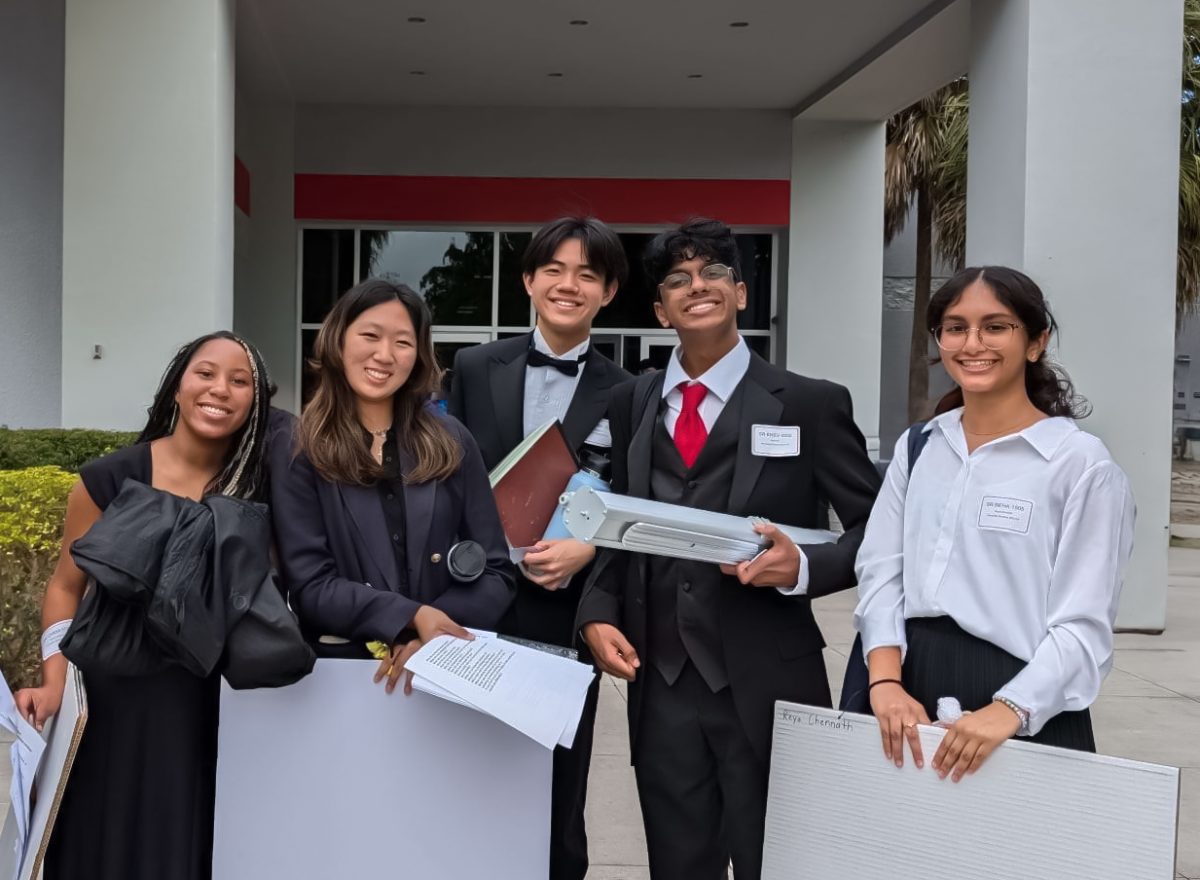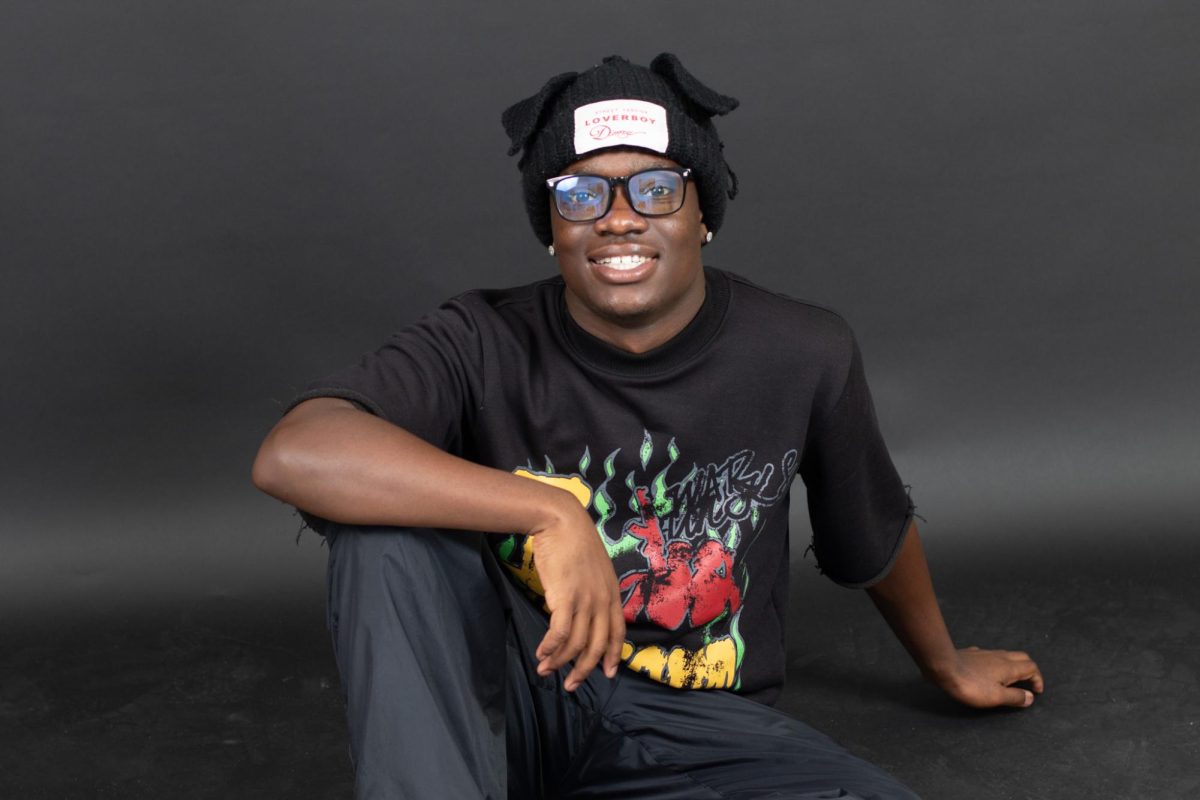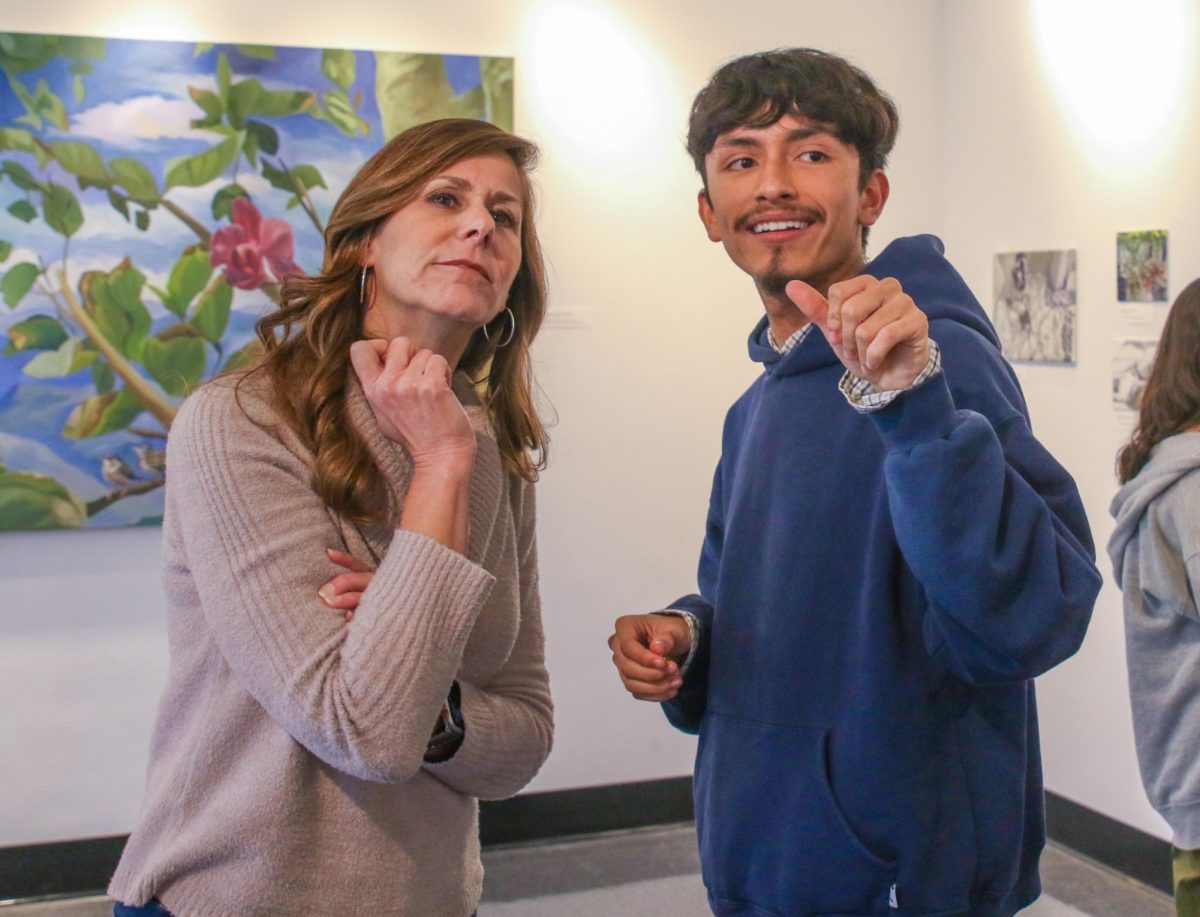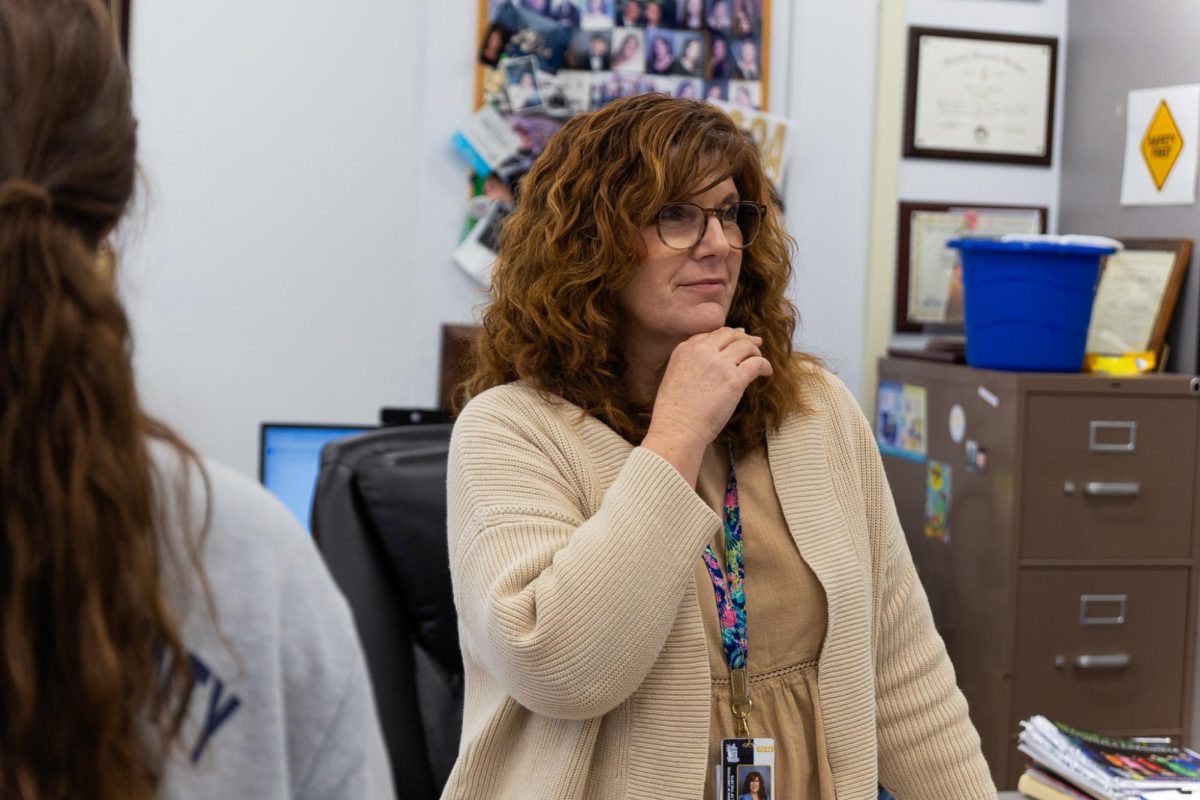As the fall air cools down into winter, students and faculty look forward to holiday spirit, gift exchanges, and winter break. But few things garner as much excitement as Dreyfoos’ annual Prism concert. Though performers at Prism get the lion’s share of recognition, the hidden crew working behind the curtains and closed doors are rarely acknowledged.
Ever since author James Patterson underwrote Prism’s move from Meyer Hall to the Kravis Center over seven years ago, the concert has grown into a holiday spectacle that few are willing to miss. Since Prism’s move to the Kravis, the performance has changed in major ways.
“The biggest difference is the level of playing and the creativity, because we didn’t have the avenue and the backstage help that we get at the Kravis Center,” manager of the stage crew Naomi Wagner said. “It was pretty much just us doing it. Now it’s … on a grander scale.”
Although it may seem miraculous that the entire concert is smoothly carried out, it is the tireless effort of the Prism stage crew in conjunction with the Kravis Center’s staff that makes it all possible.
“[The stage crew] just wants to make sure that everyone enjoys [Prism],” piano junior Jacques Coury said. “We hope that between stage crew and the performers, it runs smoothly, [and that] there aren’t any complications or anything that goes wrong.”
Stage crew members work in coordination to arrange the equipment needed for gigs, according to a list of all of the night’s performances. Throughout the performance, the Kravis Center’s staff members impart their expertise upon students and support them.
“We’re helping professionals, and those professionals are helping us understand how stage crew or showbiz works,” piano senior Devon Delgado said. “You get experience from professionals, and I don’t think you’d get that anywhere else.”
One of Prism’s most acclaimed aspects is the seamless transition from one piece to the next. In order to facilitate this fast-paced action, stage crew and Kravis staff members are kept on constant alert.
“The Prism performance is supposed to be something that continuously happens,” Ms. Wagner said. “You’re supposed to be looking around the whole auditorium to see where the next performance is going to pop up. So the biggest thing for us … is to make sure that there’s continuity.”
During the days before the show, stage crew members prepare the Kravis Center and themselves for the day and night of the big performance.
“On Monday [Dec. 3], we have to load everything up from Dreyfoos and move it all over to the Kravis Center,” Delgado said. “On Tuesday, we have to do a tech rehearsal. We have to move everybody’s chairs into position for orchestra, band, jazz combo, or something small. That’s the magic that happens when the curtain comes down.”
Long before she calls performers up to the stage, the co-manager of the stage crew and piano senior Annemarie Gerlach is hard at work compiling all the performers and their instruments. This way, she ensures that the logistics of Prism are determined ahead of the performance.
“I have a thick list of the order of the songs [being performed at Prism], who’s performing the songs, and I have to make sure I know what instruments the people are playing,” Gerlach said. “I’m like the invisible hand.”
For those on the stage crew, being behind the scenes at Prism is more than just being the living mechanism of the performance. It involves cooperation with countless groups and both taking and giving instructions to others, all for the goal of creating a unified performance.
“[Prism] has taught me how to take responsibility,” Gerlach said. “In a way, it’s paved the way for me being a leader … [which is] a really big part of my personality. It’s taught me how to take directions from the Kravis employees and our teachers, but also [how to] lead others with care.”
And beyond being the moving parts that help bring Prism together, the stage crew, just like everyone else at Prism, is there to be a vessel to spread joy throughout the holiday season.
“I think I would speak for the entire music department when I say that we really just want to have fun,” Coury said. “We just want to make sure that everyone enjoys it.”
Being backstage for the culmination of countless hours of dedication that the entire music department has poured into one performance gives the stage crew a unique perspective on music’s ability to move the soul.
“[Prism] has given me more hope and confidence in people and cooperation,” Delgado said. “I had a little opportunity to look on the camera behind the stage where I could see the audience. I had an opportunity to see their faces, and it’s just heightened my love for music because music can change people.”























































![Band junior David Galli plays the saxophone alongside other performers at Prism. Behind the curtain, stage crew members moved instruments and equipment into place for the next performance. Piano junior Jacques Coury was among the stage crew members working behind the scenes. “There’s really not a dull moment [at Prism],” Coury said. “We’re always doing something, and there’s always something we can be doing to make [the performance] run smoother.”](https://www.themuseatdreyfoos.com/wp-content/uploads/2018/12/Screen-Shot-2018-12-08-at-8.34.32-PM-900x732.png)




